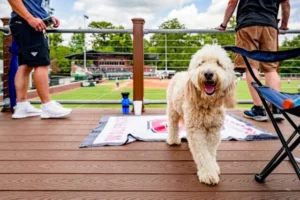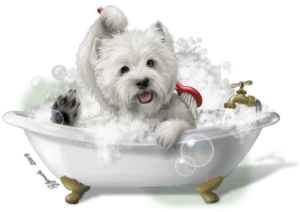Why Do Dogs Eat Dirt?
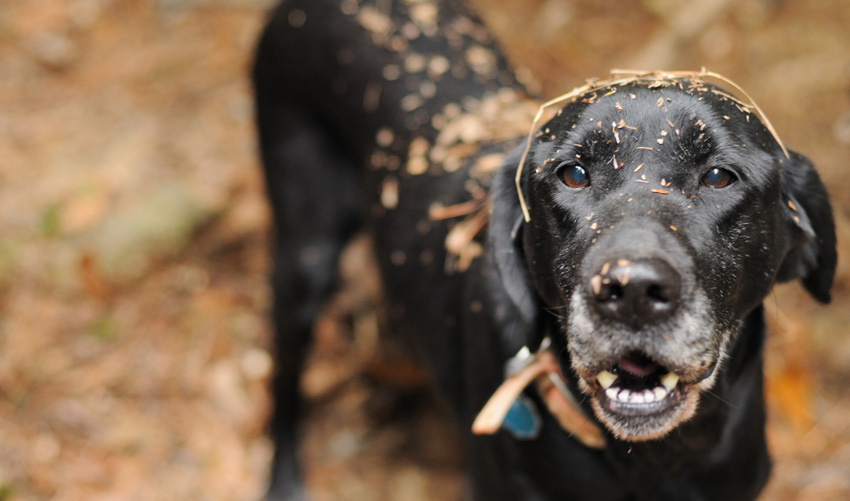
Why Do Dogs Eat Dirt?:- According to holistic veterinarian Dr. Laurie S. Coger, DVM, this behavior, known as “pica,” involves the consumption of non-food items. Dogs might eat dirt for various reasons, including nutritional deficiencies, behavioral issues, or physical conditions. Stress or boredom can also prompt them to ingest unusual things, including dirt.
If your dog is frequently eating dirt, it’s important not to ignore this behavior, as it might indicate a more serious problem, such as:
– Anemia (low red blood cell count)
– Nutritional imbalances or deficiencies, particularly in minerals
– Poor-quality food
– An upset stomach
– Gastrointestinal disturbances

Dr. Coger explains that while stomach and gastrointestinal issues could lead to dirt eating, dogs are more likely to eat grass in these situations. “If the dirt eating is frequent, intense or manic, or involves consuming large amounts, it’s time to visit the vet,” she advises. “Changes in stool are another sign that a vet visit is necessary. Bloodwork might be needed to identify any underlying issues.”
Why You Should Prevent Your Dog from Eating Dirt?
While eating dirt isn’t always harmful to your dog, there are several situations where it can pose health risks:
– Parasites and Bacteria: Dirt can harbor parasites and bacteria that might make your dog ill.
– Digestive Upset: Consuming too much dirt at once or regularly eating small amounts can disrupt your dog’s digestive system.
– Constipation: Excessive dirt consumption can lead to constipation due to the large amount of indigestible material.
– Impaction: A significant build-up of dirt in the digestive system might require surgical intervention.
– Toxic Fertilizers: Fertilizers in the dirt can contain harmful toxins that could potentially lead to organ failure.
How to Prevent Your Dog from Eating Dirt?
To keep your dog from munching on dirt and protect them from potential parasites found in soil, follow these helpful tips:
Provide a Balanced Diet
Ensure your dog is on a high-quality diet to meet their nutritional needs. Consult with your veterinarian to determine the best food for your dog’s specific requirements.
Most dogs thrive on being fed twice daily. For dogs under 10 pounds, offering 3-4 small meals a day is ideal. If your dog is only fed once a day and you notice them eating dirt, sticks, or other objects, they might be hungry. Splitting their daily food into 2-3 meals can help keep their appetite in check and reduce the urge to snack on non-food items.
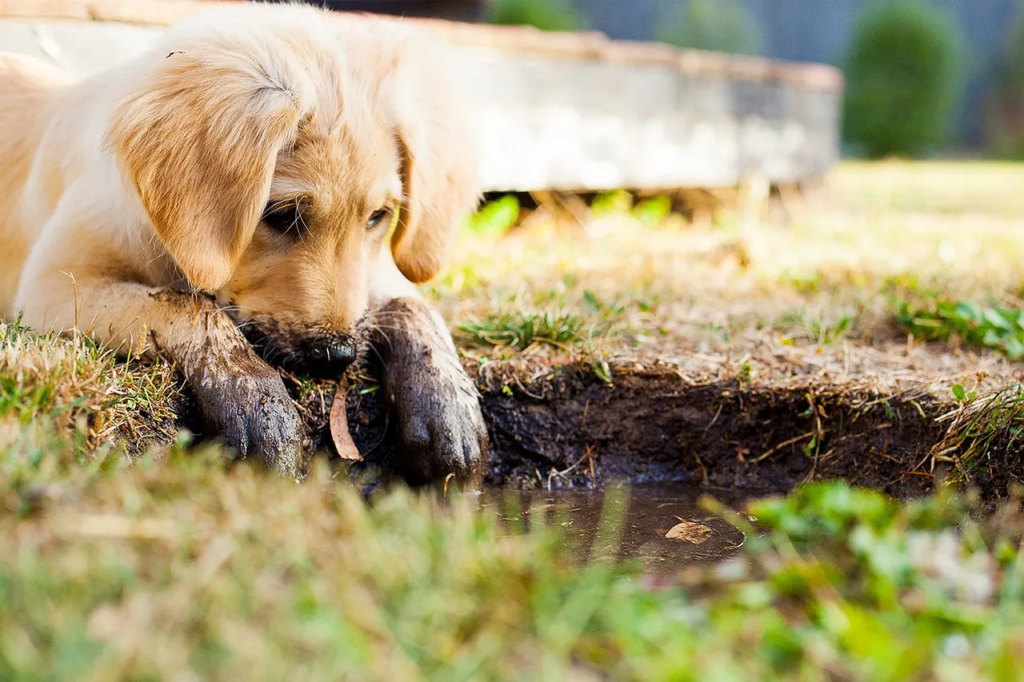
Supervised Walks
Always keep your dog on a leash when going outside to ensure direct supervision. This allows you to quickly notice if your dog tries to eat something unusual. If they pick up an object, you can immediately remove it from their mouth and redirect them.
If walking your dog on a leash is challenging or if they are quick to eat dirt or other items, consider using a basket muzzle. This muzzle fits loosely over the mouth and prevents your dog from eating unwanted objects.
Parasite Prevention
To safeguard your dog from intestinal parasites, fleas, ticks, and heartworm disease, keep them on year-round heartworm and flea/tick prevention. Heartworm prevention requires a prescription, and an oral flea/tick preventative is recommended for best results, also requiring a prescription.
Reducing Anxiety and Boredom in Your Dog
Ensure your dog receives ample exercise and has a variety of toys to keep them entertained. This approach can significantly help reduce anxiety and prevent your dog from resorting to eating dirt out of boredom.
If your dog experiences severe anxiety, it’s important to consult your veterinarian. Additionally, consider enlisting the help of a professional dog trainer or a boarded veterinary behaviorist for tailored strategies to manage and alleviate your dog’s anxiety.
Why Does My Dog Eat Sand?
If your dog has access to sand, especially near the ocean, they might start eating it. This habit can lead to serious health problems if not addressed promptly. Eating sand can cause issues like diarrhea, vomiting, weakness, and excessive thirst. Additionally, sand may contain harmful materials like small stones, plastic debris, and even cigarettes.
The reasons behind this behavior are similar to those for eating dirt. However, sand is often worse due to higher pollution levels at beaches and its harder texture, which can lead to more severe gastrointestinal problems. It’s important to address this behavior immediately to prevent health complications.
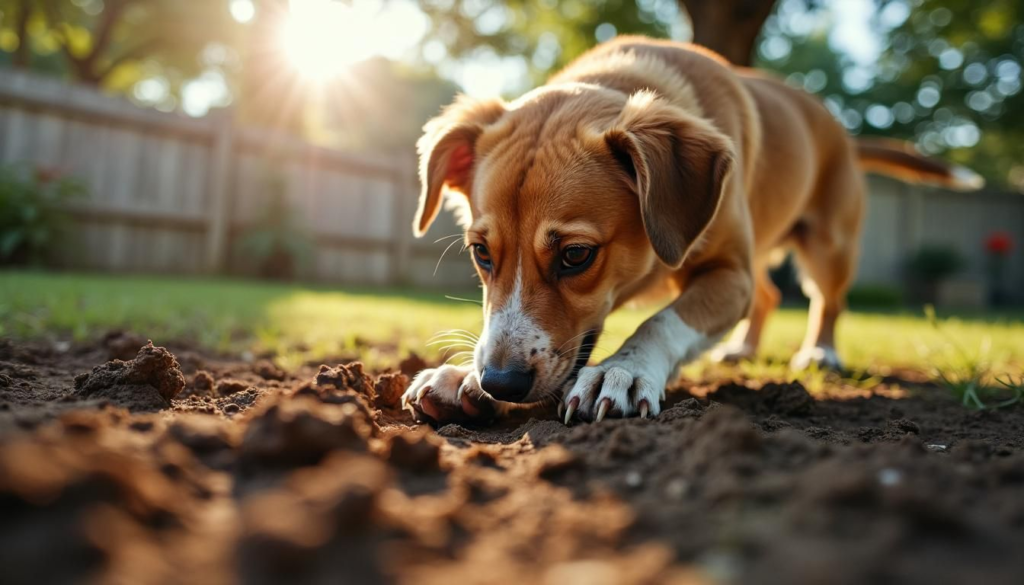
When Should You Be Concerned?
If your dog eats dirt occasionally, it’s usually not a big deal. However, if your pup is consistently consuming large amounts of soil, it’s time to visit the vet. Watch for these signs that indicate a vet appointment is needed:
– Frequent dirt eating (more than once or twice)
– Loss of appetite
– Irregular bowel movements
– Lethargy or reduced activity
– Pale gums, which may indicate anemia
Your vet will examine your dog, run tests if needed, and check for potential issues like internal injuries or blockages caused by dirt consumption.
The Risks of Dogs Eating Dirt
If you notice your dog munching on dirt, it’s important to address this behavior right away, as it can be harmful to their health. According to the AKC, here are some risks associated with geophagia (eating dirt) in dogs:
– Intestinal Blockages: Ingested dirt can cause blockages in the intestines, which might require surgical intervention.
– Exposure to Toxins: Dirt can contain pesticides or other harmful chemicals that your dog could consume.
– Choking Hazards: Eating dirt may lead to choking if larger pieces get lodged in the throat.
– Damage to Teeth and Digestive Tract: Rocks or sticks in the dirt can damage your dog’s teeth, throat, or digestive system.
– Parasite Infections: Soil can harbor parasites that may infect your dog.
Discouraging your dog from eating dirt is crucial to keeping them healthy and safe.
Also Read:-


